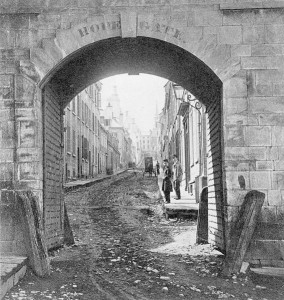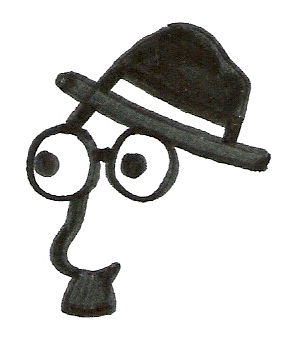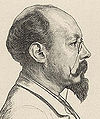Hope Gate, Québec ca. 1871, by Louis-Prudent Vallée
There are many languages, many words. All spoken languages are prefect because they have been used for centuries.
But sometimes there is a word in a language that seems to be unknown in other languages.
I looked up the word prudent, as I didn’t know exactly how to define it.
According to thefreedictionary.com it is:
prudent
adj.1. Wise in handling practical matters; exercising good judgment (sic) or common sense.
2. Careful in regard to one’s own interests; provident.
3. Careful about one’s conduct; circumspect.
There is a possibility at the bottom of the page to translate the word into another language. This can be helpful for those that speak a different native language.
But prudent is translated into Dutch as voorzichtig. That is definitely not right. Voorzichtig means careful, and this not in the sense mentioned in point 1, 2 or 3 above.
There is apparently no good translation of prudent. That’s probably why I didn’t really know it. It makes one wonder why the Dutch didn’t need a word covering this quality.
—-
P.S. I came to think of the word verstandig as a somewhat better translation. And indeed after a quick search I found that http://www.freedict.com/onldict/onldict.php chooses verstandig as the best option.
But http://online.ectaco.co.uk gives many options: voorzichtig, omzichtig, beleidvol, oordeelkundig, verstandig.






